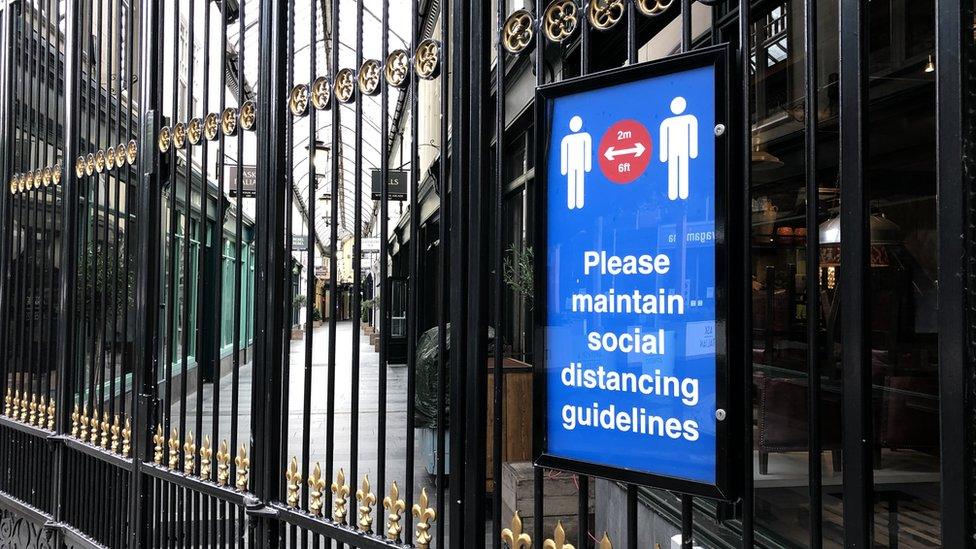Shopping: Almost one in five shops in Wales empty
- Published
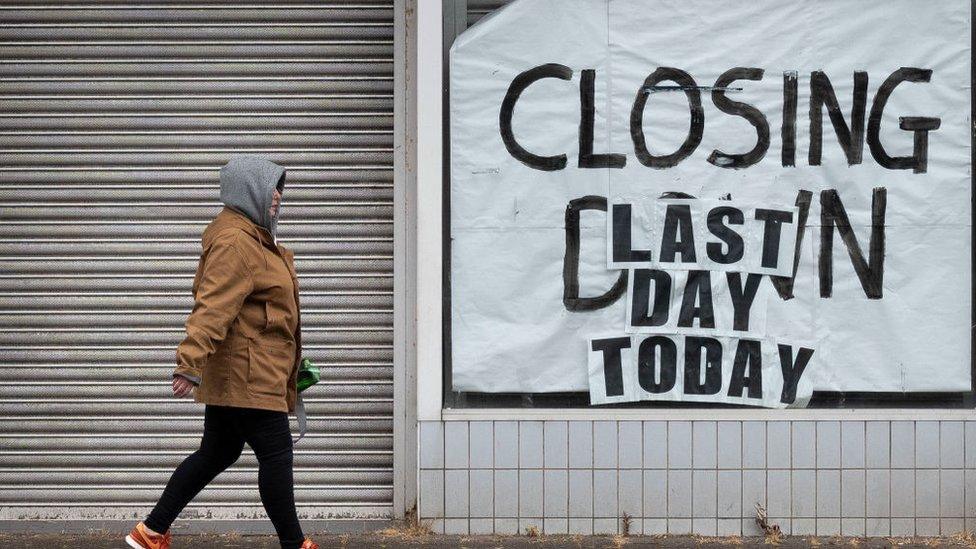
Almost one in five shops in Wales are now empty, according to the Welsh Retail Consortium.
The vacancy rate increased from 15.9% to 18% in the third quarter of this year, the largest jump anywhere in the UK.
However, more independent shops are opening up in town centres, business leaders have said.
The Welsh Government said it provided £90m at the start of the year to support town centres.
It added it had made a further £9m available to help towns recover from the coronavirus pandemic.
The north-east of England, with 18.6%, was the only region in the UK to have a higher vacancy rate than Wales.
Greater London had the lowest figure with 10%.
Shopping centres and high streets have the most empty units in Wales - 20.8% and 18.6% respectively.
Retail parks had the lowest, 8.6%, but this figure increased from 6.9% in the second quarter of 2020.
Which businesses are struggling?
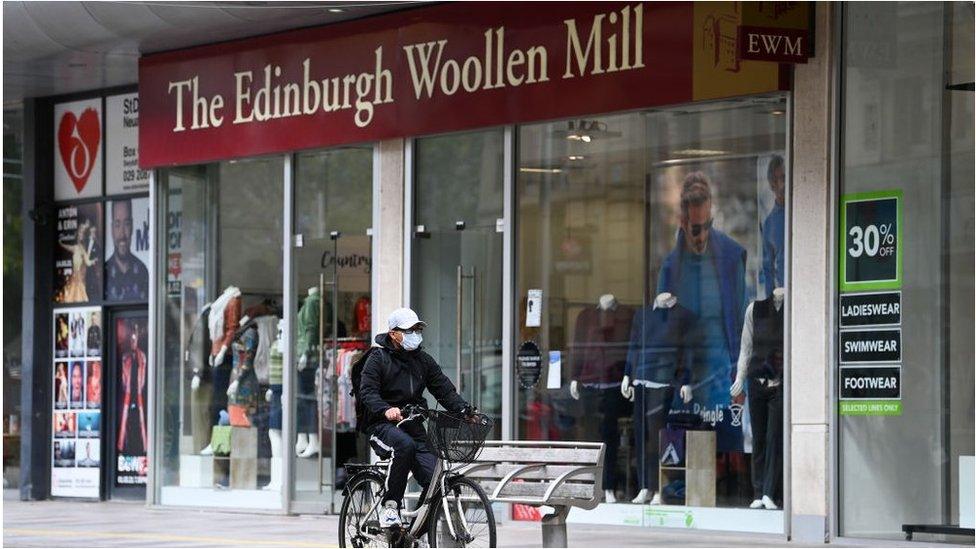
The Edinburgh Woollen Mill Group owns Peacocks, Jaeger and Bonmarche
Cardiff-based Peacocks became the latest chain to collapse into administration on Thursday and is one of a number to hit trouble in 2020.
It comes two weeks after its owner, the Edinburgh Woollen Mill Group (EWM), put its eponymous shops into the same process.
This time last year, the group was rescuing Bonmarche from administration, while River Island and Topshop have also closed stores in Wales.
Furniture and fashion chain Laura Ashley also fell into administration in March, resulting in the closure of its factory in Newtown, Powys in June, while Debenhams warned in April it would close four of its Welsh stores in a dispute over business rates.
Aberdare 'has potential to thrive'
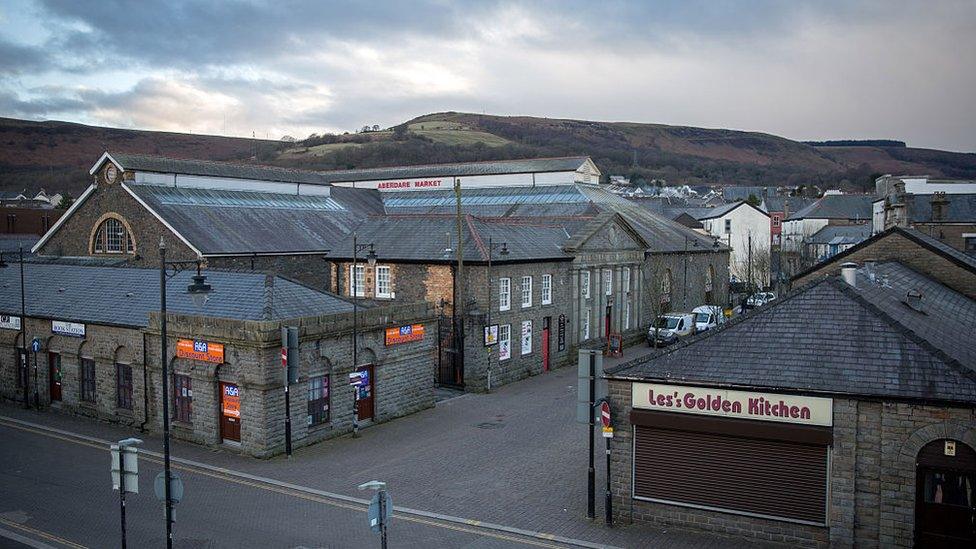
The south Wales valleys town of Aberdare could lose three shops on the same street - but the head of its business improvement district is optimistic for the future
Some towns, such as Aberdare in Rhondda Cynon Taf, are home to multiple stores from EWM and face losing several shops at the same time if the company is not saved.
Dawn Penny, manager of Our Aberdare - the town's business improvement district, said she was optimistic the town could thrive despite the threat of three shops closing.
Peacocks, Bonmarche and New Look - all within a few hundred yards of each other on the town's Cardiff Street - could close.
"Everyone notices it [when shops close]," she said. "Obviously it's a change, but through change you can grab opportunity.
"It's not just Aberdare and it's not just Wales, and I think there's a change happening because of the pandemic... the feeling among independent business owners is really positive at the moment."
Ms Penny said some empty shops may be too large and business rates too high to be attractive to smaller businesses, but could be split into smaller units in order to fill them.
"I definitely think Aberdare has the potential to thrive," she added.
'David and Goliath'
The positive feeling among independent business owners in Aberdare is one replicated in other parts of Wales, Pam Poynton from Bangor's business improvement district said.
Ms Poynton said the city, which is home to Wales' longest high street, has seen Topshop, H&M and the Body Shop close recently, but their place has been taken by independent shops.
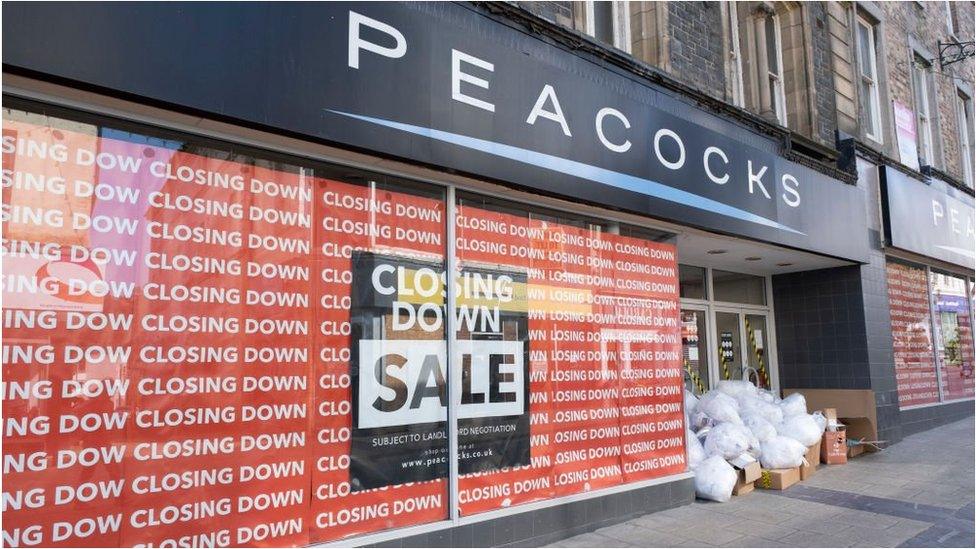
Peacocks in Bangor had closing down signs in September, but independent businesses are filling the void
She said: "We've got a lot more people taking up smaller shops and the big ones are sort of going. It's a bit like a David and Goliath situation.
"The smaller stores seem to be outdoing the bigger stores at the moment. I think people are supporting the local shops, and I suppose now people are thinking that if they want a shop to stay open they have to support it.
"I think sometimes people are fearful of change and with Covid we don't know what's going to happen. But things people have forecasted don't seem to be happening at the moment. We've had some closures but we've got some new ones opening."
In Llandudno, Conwy county, business mentor Peter Denton said the town had "weathered the stormy retail waters" better than most.
He said there had been a move towards coffee and tea shops on the high street, but it had "far fewer empty shops than most towns".
He added the town's relatively isolated position on the northern coast of Wales helped it retain certain businesses, which may be an advantage in the future.
High streets 'need big and small businesses'
Sara Jones, head of the Welsh Retail Consortium, said it was important businesses were able to stay on the high street, and a mix of chains and independent shops was crucial.

Sara Jones said shopping areas must offer a mix of chains and independent stores
"We think chain closures will have a big impact, in the sense that the high street relies on being a multi-offer retail site," she said.
"It's a challenge because when we lose one of these it has knock-on consequences. It has a large impact on that community because a lot of those stores will be big employers.
"Having different types of business is more helpful and more attractive. It shouldn't be about attracting less big stores and bringing in more independents... if we're going to see a repurposed high street, we have to have both.
"We could still see a high street that's vibrant but it [depends on] how much now the government looks to a recovery plan that puts retail at the forefront."
The Welsh Government said it had provided funding to improve more than 50 town centres.
It said: "We announced a further £90m of support for town centres through our Transforming Towns approach at the start of the year.
"We have also made up to £9 million available to support town centres recover from the coronavirus pandemic, enabling town-centre adaptations to support current circumstances and also drive footfall in the future."
- Published23 October 2019
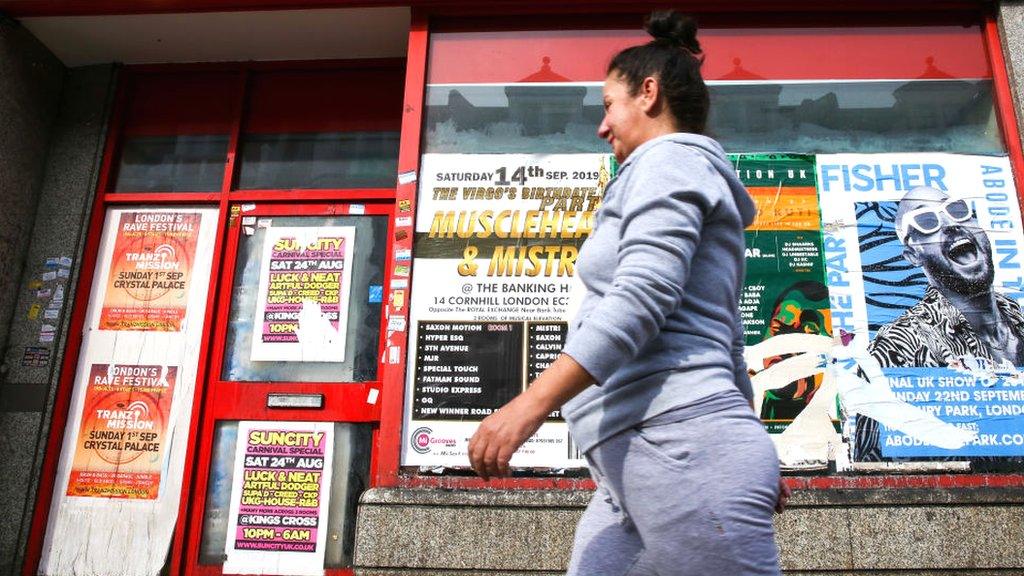
- Published28 September 2020

- Published13 January 2020
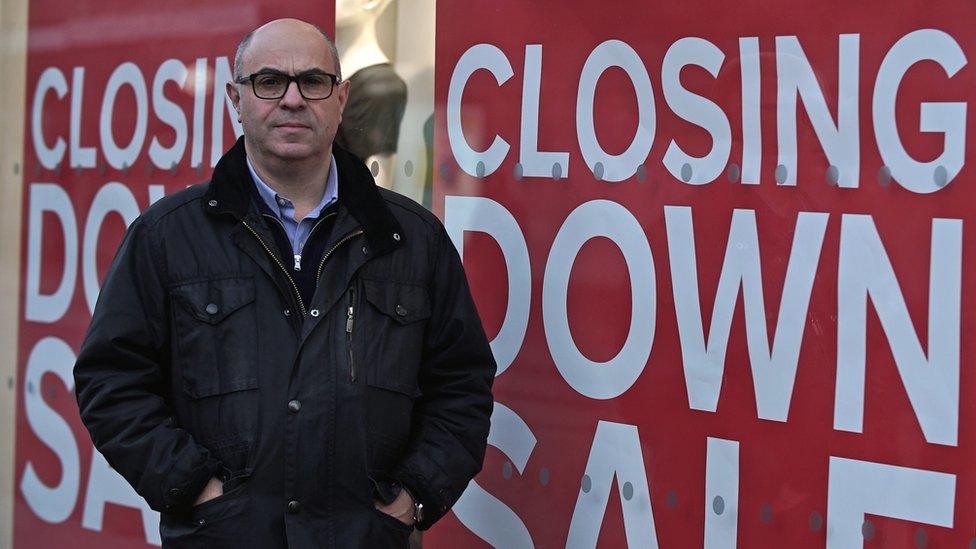
- Published11 August 2020
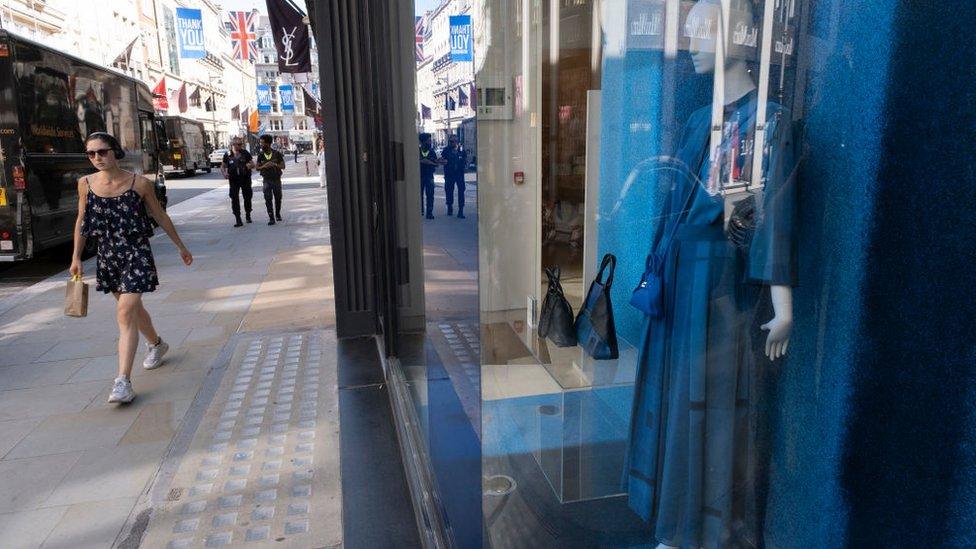
- Published11 June 2020
